The Stories of ProPublica
for the netzwerk recherche 2012 conference
Dan Nguyen twitter: @dancow / @propublica
June 1, 2012
Shortlink: http://bit.ly/propublicastories
for the netzwerk recherche 2012 conference
Dan Nguyen twitter: @dancow / @propublica
June 1, 2012
Shortlink: http://bit.ly/propublicastories
ProPublica is an independent non-profit online newsroom, based in Manhattan, focused on "investigative journalism in the public interest"

 Published first story, in collaboration with CBS 60 Minutes, during June 2008: Lost in Translation: Alhurra—America’s Troubled Effort to Win Middle East Hearts and Minds
Published first story, in collaboration with CBS 60 Minutes, during June 2008: Lost in Translation: Alhurra—America’s Troubled Effort to Win Middle East Hearts and Minds
 Awarded first Pulitzer Prize in 2010
Awarded first Pulitzer Prize in 2010Employs about 40 full-time journalists (editors, reporters, online developers and producers). The vast majority of ProPublica's editorial staff comes from print.
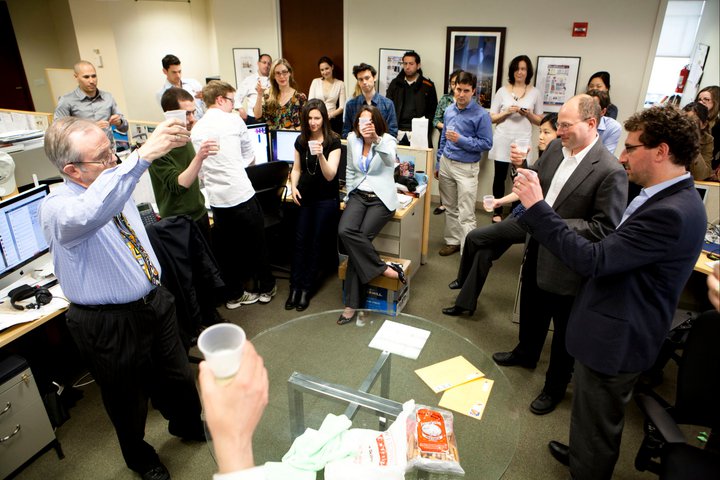
Executive editor: Paul Steiger, former managing editor of The Wall Street Journal.
Managing editor: Steve Engelberg, formerly of the Oregonian and NYT
General manager: Dick Tofel, formerly of the Wall Street Journal
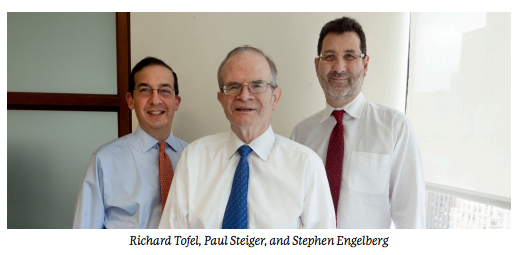
Primarily funded through foundation grants, but also through small donations from readers.
Small amount of adspace, no paywall/subscription fees. Stories are freely republished.

Operates much like a traditional news organization's investigative team (long deadlines, not expected to fill daily stories), except that the whole organization is working on projects.

The web (and our website propublica.org) is our press.
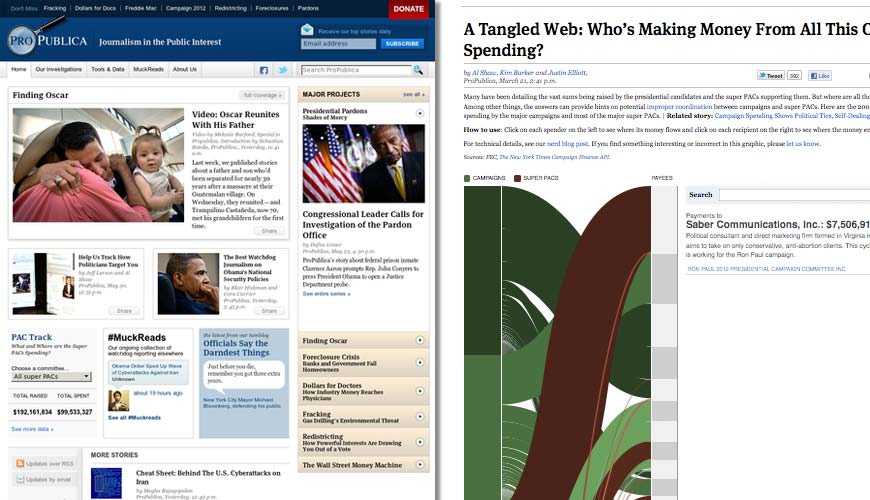
However, we often reach out to other news outlets for partnerships in order to increase the reach of our stories.
January – April 2012: 29 partner stories with 14 different partners.

Our funding model does not rely on subscriptions, so we allow other outlets to copy (and correctly attribute) our work at no cost, in order to spread our work's reach.
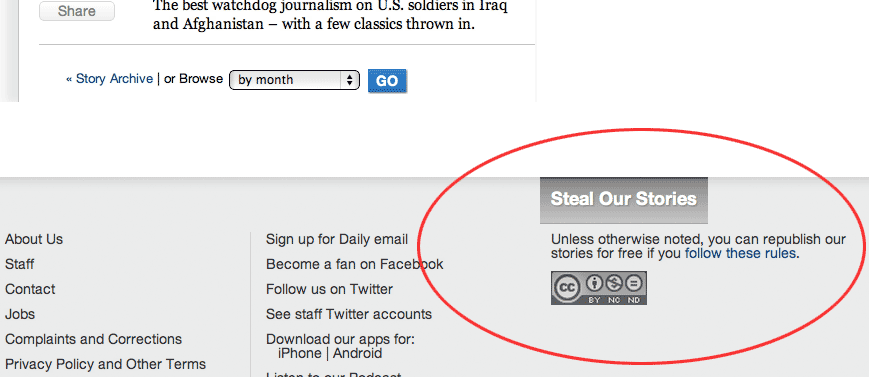
We generally make the data behind our data-backed projects available upon request (usually by researchers or other reporters).
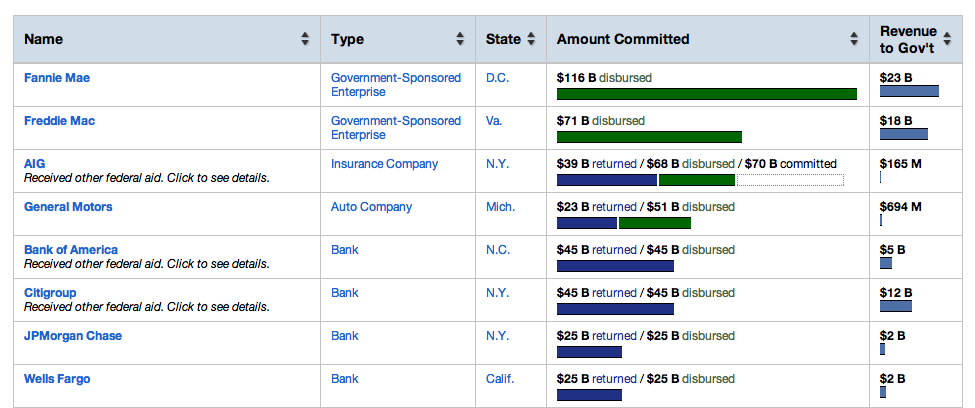
We open source a lot of our general-use programs for others to adapt and use
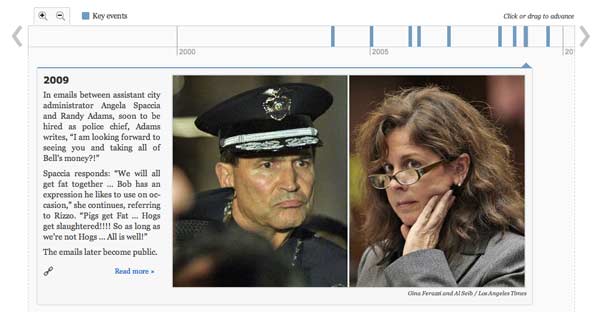
And we do "how we did it" technical write-ups on our blog.
Informing readers what we we want to investigate and how they can help.
 Foreclosure crisis – We asked homeowners if the government's relief program was effective for them. We found people to profile and wide-ranging flaws to examine.
Foreclosure crisis – We asked homeowners if the government's relief program was effective for them. We found people to profile and wide-ranging flaws to examine.
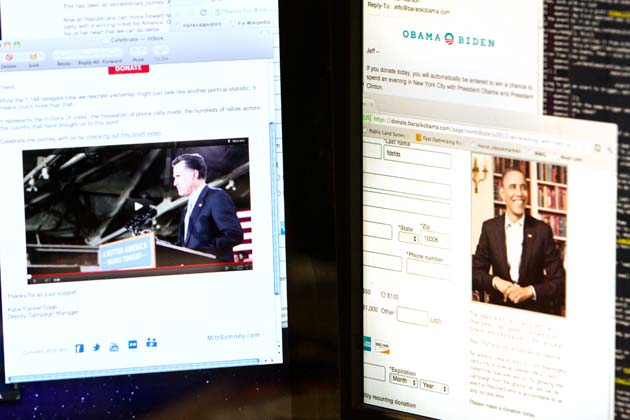 Message Machine – We ask readers to send in campaign fundraising emails. We then use mathematical analysis to determine how much political campaigns know about each recipient.
Message Machine – We ask readers to send in campaign fundraising emails. We then use mathematical analysis to determine how much political campaigns know about each recipient.
A 13,000-word piece, co-published on ProPublica's site and in the New York Times Magazine
First time an online-only news organization wins a Pulitzer.
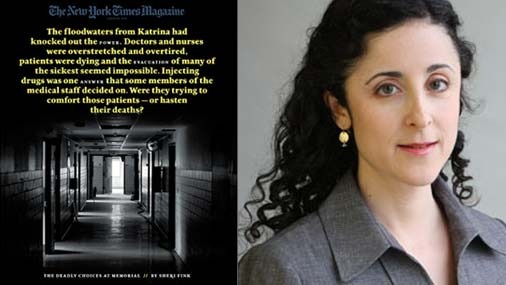
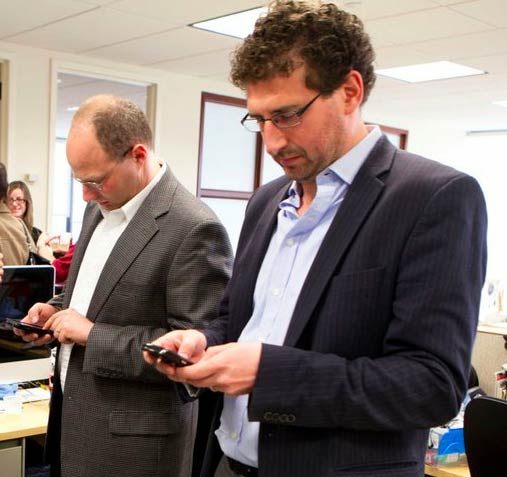
Aired on radio programs, This American Life and Planet Money, and ran as a 6,000-word piece on ProPublica's site
First Pulitzer to be awarded to a story that didn't originally appear in print.
Reporters Jesse Eisinger and Jake Bernstein were approached by NPR's Planet Money in 2009 with a "theory about the underpinnings of the 2008 financial meltdown"
The collaboration included a Broadway show tune:

Co-published with the Los Angeles Times and on ProPublica's website.
Included a news application listing all the sanctioned nurses and a "recipe" for other reporters to investigate their state nursing boards.
Charlie Ornstein and Tracy Weber won a Pulitzer in 2005 at the LA Times for their reporting on deadly problems at a major hospital.

They learned of problem nurses while covering their beat and compiled a database of thousands of nurses and researched each case and their result.
The day after the report, Gov. Arnold Schwarzenegger forced out half the nursing board.
Allowed readers to look up their own nurses while showing all of our work and research.
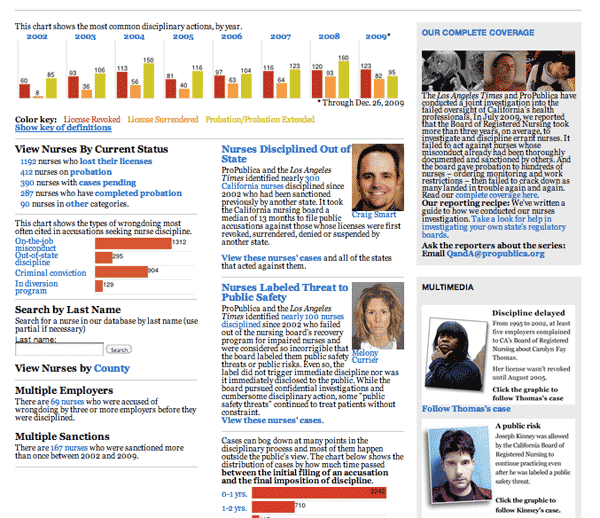
"A news application is a big interactive database that tells a news story. Think of it like you would any other piece of journalism. It just uses software instead of words and pictures."
– Scott Klein, Editor of News Applications at ProPublica; quoted in the Data Journalism Handbook
The Dollars for Docs search widget on NPR's news page
Congressional Sponsors of the Stop Online Piracy Act (SOPA) on thomas.loc.gov
SOPA Opera at ProPublica
How drug industry money reaches our doctors
Traditional investigative reporting + programmatic data gathering and analysis
Published as:

Call it shameless promotion or kickbacks or a necessary part of sponsor-organization relations—whatever you call it, ProPublica will continue to make sure that the financial relationship between pharma and other healthcare industry players is fully transparent to all stakeholders – including the public.
- PharmaExec.com
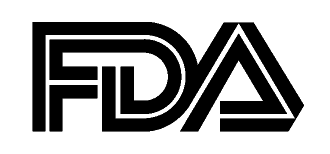

Actiq, a powerful narcotic "lollipop", is a drug marketed by Cephalon.
It is considered 100 times more powerful than morphine.
The FDA limited its use to opioid-tolerant cancer patients.

From a 2008 U.S. Department of Justice press release (emphasis added):
...the Actiq label stated that the drug was for "opioid tolerant cancer patients with breakthrough cancer pain, to be prescribed by oncologist or pain specialists familiar with opioids."
Using the mantra "pain is pain," Cephalon instructed the Actiq sales representatives to focus on physicians other than oncologists, including general practitioners, and to promote this drug for many uses other than breakthrough cancer pain.
In 2008, Cephalon ultimately agreed to pay $425 million to settle the Justice Department probe.
Part of the agreement included publishing on their website the list of doctors who they pay to promote their drugs.
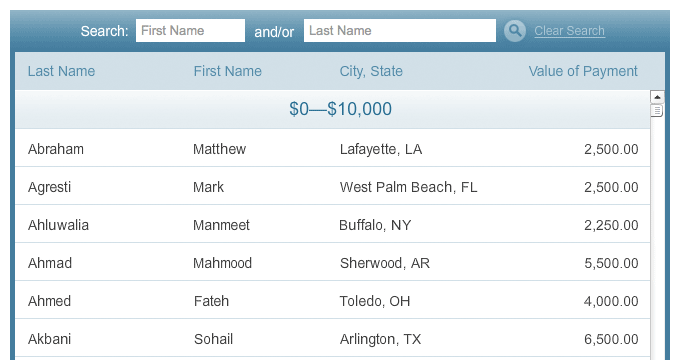
Several other drug companies, including Pfizer and AstraZeneca, reached similar settlements.
Pfizer, which released its first batch of data on doctor payments on March 31, said its Web site made it easy to look up individual physicians.
Dr. Freda Lewis-Hall, Pfizer’s chief medical officer, said the company was “committed to ensuring these relationships are transparent to the public and are carefully managed.”
But the company declined to identify its top recipient.
"Data on Fees to Doctors Is Called Hard to Parse," New York Times, 4/12/2010
On my personal blog, I wrote an article trying to show journalists how to program and used Pfizer's website as an example.
Pfizer's site made it very difficult to sum up amounts or find out the highest-paid doctors.
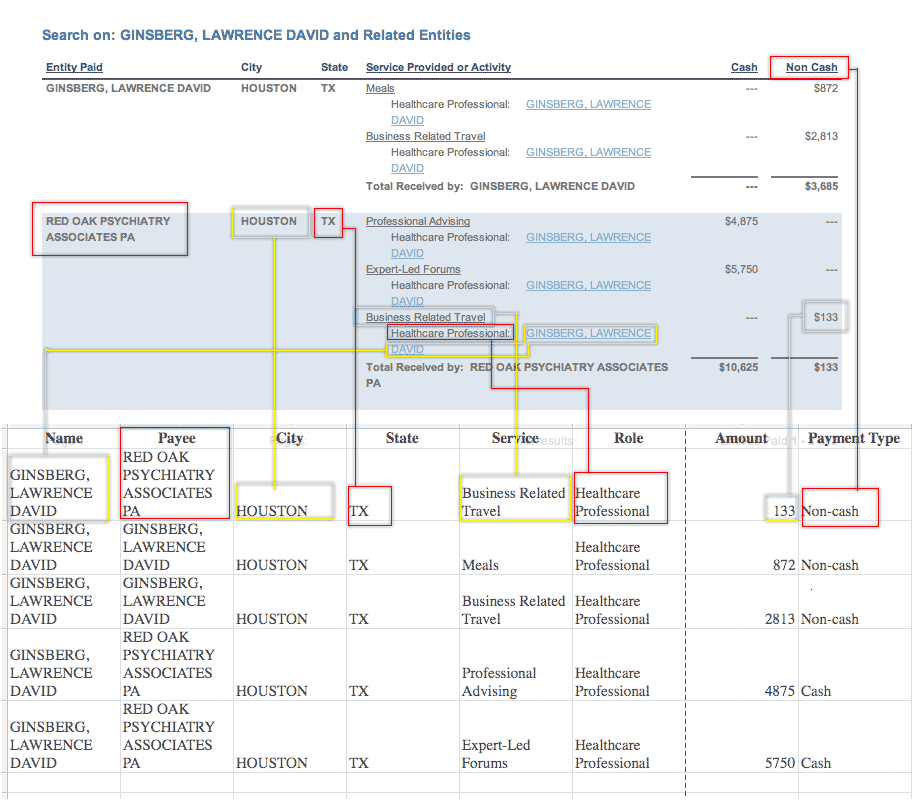
Reporter Charles Ornstein, who has covered the health beat for years, noticed my post and proposed we do it for all the companies that so far disclosed.

After some programming, data was gathered from the companies' many formats into one database so that we could sort and analyze the big picture.
"Damn!"– Hospital official's response when told how much one of his doctors made from pharma
Once the drug company payment lists were in database form, we could at least find the highest earners.
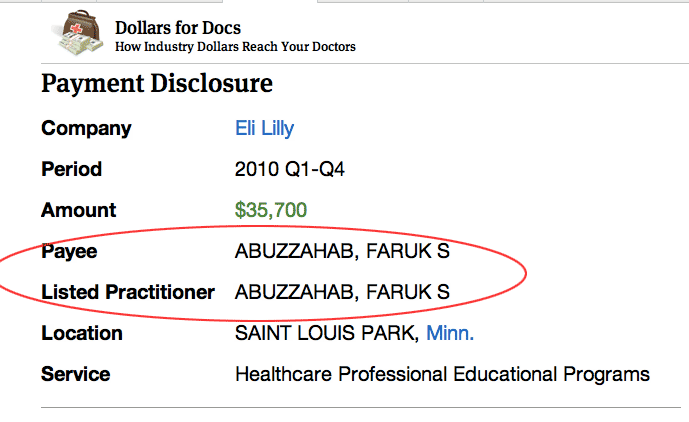
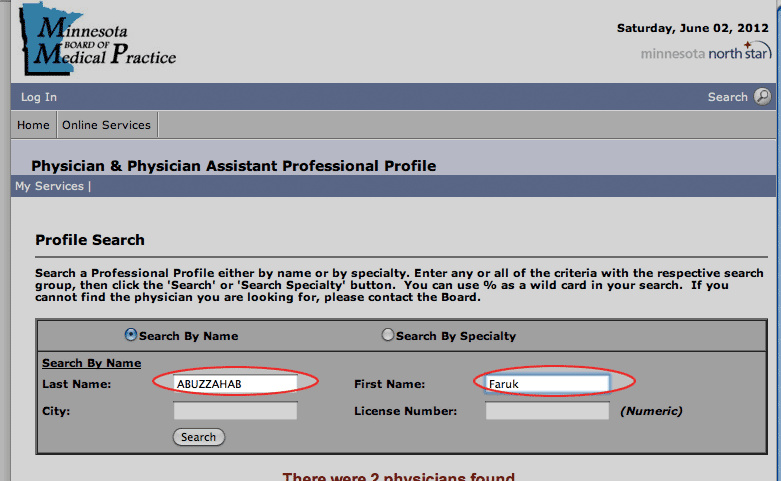
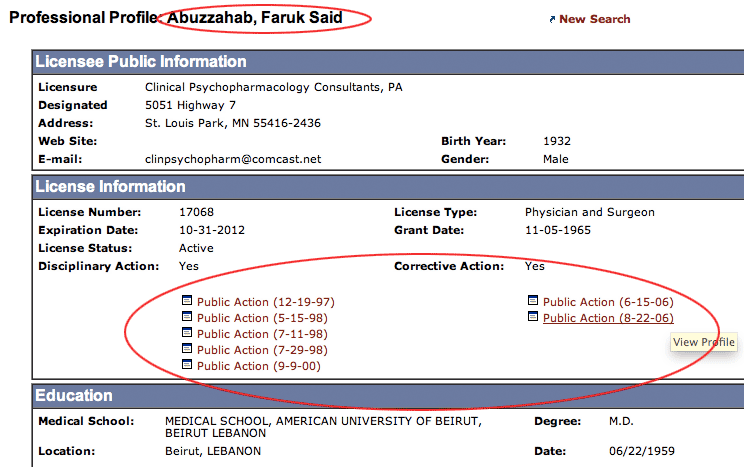
Allowed us to efficiently find doctors on pharma's payroll – ostensibly hired for being great leaders in the field – who had questionable backgrounds.
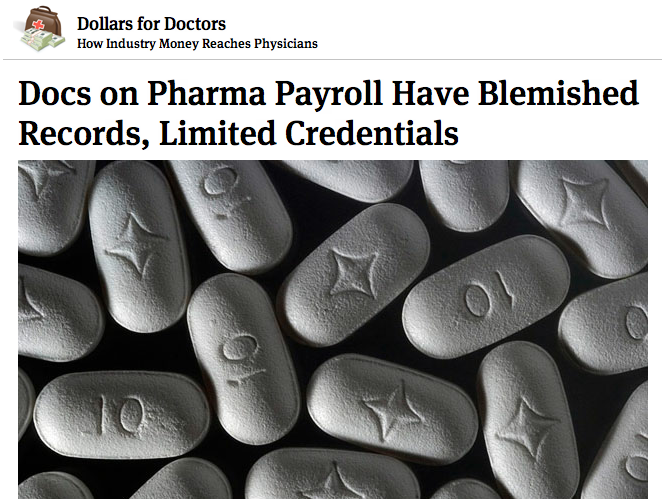
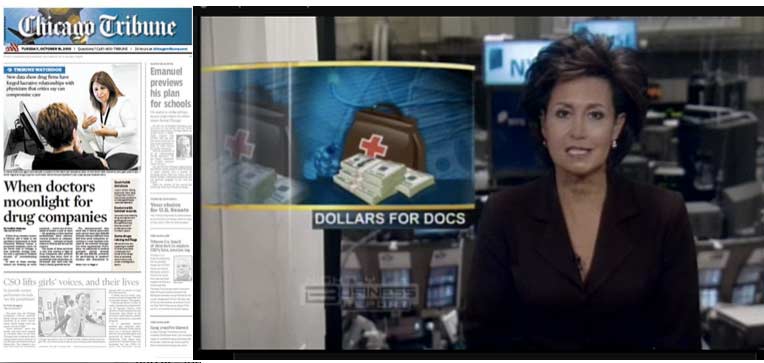
ProPublica offered embargoed data to 15 partners, including NPR, PBS, and the Boston Globe.
We coordinated our coverage and stories for same-day launches.
The Dollars for Docs news app draws the lionshare of the project's traffic. We wanted readers to be able to inform themselves and talk to their doctors.
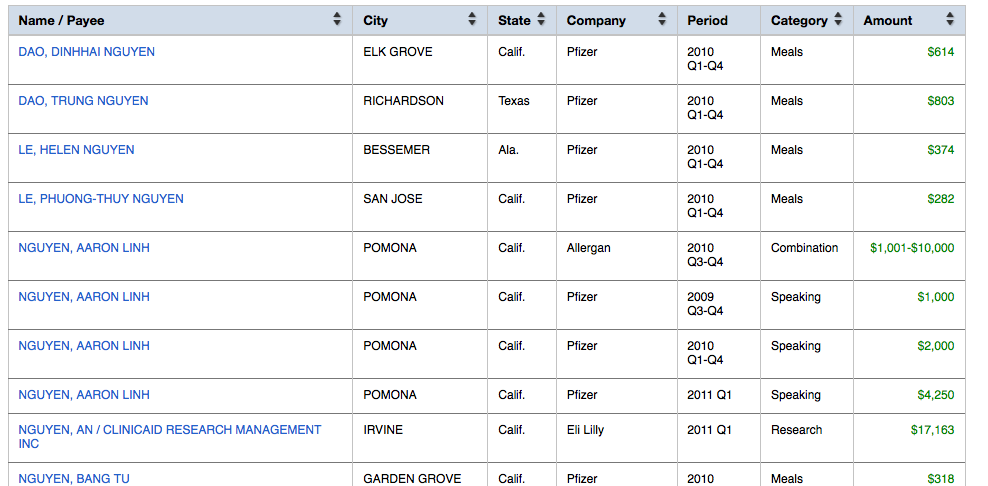
Making this information universally available has shaken the debate.
Many doctors hadn't realized that their names were on these records. Or that these records had been made public.
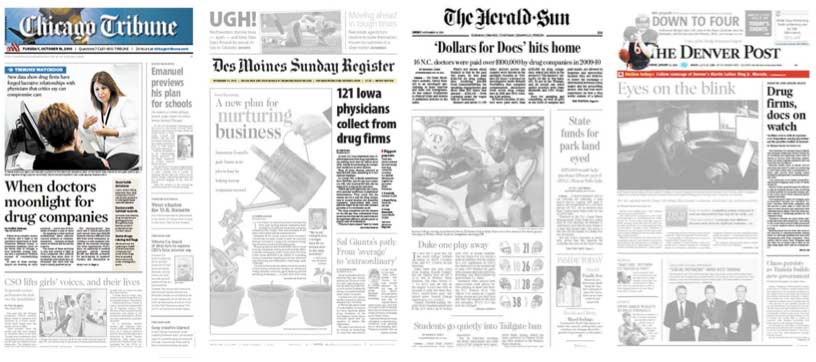
By giving news outlets our data freely, they spread the awareness and impact of Dollars for Docs. The countless local stories end up driving their readers to our news application.
Even researchers and investigators regularly ask for our dataset, even though the programming for gathering it isn't hard.
Many important stories aren't being done because the information-gathering part seems hard, even when the information is completely public.
Never assume that a given body of public information has ever truly been looked at.
Feel free to contact me by twitter: @dancow or email dan.nguyen@propublica.org